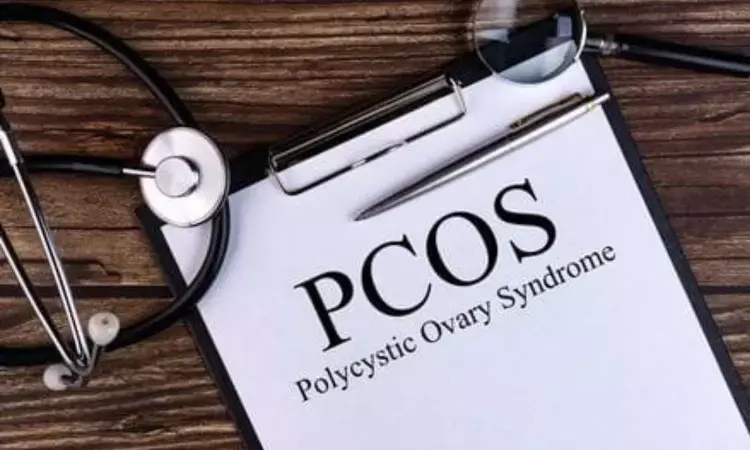- Home
- Medical news & Guidelines
- Anesthesiology
- Cardiology and CTVS
- Critical Care
- Dentistry
- Dermatology
- Diabetes and Endocrinology
- ENT
- Gastroenterology
- Medicine
- Nephrology
- Neurology
- Obstretics-Gynaecology
- Oncology
- Ophthalmology
- Orthopaedics
- Pediatrics-Neonatology
- Psychiatry
- Pulmonology
- Radiology
- Surgery
- Urology
- Laboratory Medicine
- Diet
- Nursing
- Paramedical
- Physiotherapy
- Health news
- Fact Check
- Bone Health Fact Check
- Brain Health Fact Check
- Cancer Related Fact Check
- Child Care Fact Check
- Dental and oral health fact check
- Diabetes and metabolic health fact check
- Diet and Nutrition Fact Check
- Eye and ENT Care Fact Check
- Fitness fact check
- Gut health fact check
- Heart health fact check
- Kidney health fact check
- Medical education fact check
- Men's health fact check
- Respiratory fact check
- Skin and hair care fact check
- Vaccine and Immunization fact check
- Women's health fact check
- AYUSH
- State News
- Andaman and Nicobar Islands
- Andhra Pradesh
- Arunachal Pradesh
- Assam
- Bihar
- Chandigarh
- Chattisgarh
- Dadra and Nagar Haveli
- Daman and Diu
- Delhi
- Goa
- Gujarat
- Haryana
- Himachal Pradesh
- Jammu & Kashmir
- Jharkhand
- Karnataka
- Kerala
- Ladakh
- Lakshadweep
- Madhya Pradesh
- Maharashtra
- Manipur
- Meghalaya
- Mizoram
- Nagaland
- Odisha
- Puducherry
- Punjab
- Rajasthan
- Sikkim
- Tamil Nadu
- Telangana
- Tripura
- Uttar Pradesh
- Uttrakhand
- West Bengal
- Medical Education
- Industry
Groundbreaking study uncovers link between serum apelin, visfatin levels, and body composition in PCOS patients

China: Polycystic Ovary Syndrome (PCOS) affects millions of women worldwide, causing hormonal imbalances and a myriad of symptoms, including irregular periods, acne, and infertility. Among the many challenges in managing PCOS is understanding its complex interplay with metabolic factors. In a breakthrough study, researchers have uncovered a significant relationship between serum apelin, visfatin levels, and body composition in women with PCOS.
The study, published in the European Journal of Obstetrics & Gynecology and Reproductive Biology, found an increased fat content in various parts of the body, reduced skeletal muscle content, and are often complicated by metabolic abnormalities in PCOS patients compared with healthy women.
"Serum apelin and visfatin correlated not only with fat mass, obesity, and fat distribution but also with muscle mass and distribution," the researchers wrote. It may be possible to reduce the long-term risk of metabolic disease in PCOS through the management and monitoring of the body composition in PCOS patients or to reflect the PCOS therapeutic effect.
The study by Dan Kuai, Tianjin Medical University General Hospital, Tianjin, China, and colleagues investigated the relationship between body composition and serum visfatin and apelin levels in patients with polycystic ovary syndrome.
For this purpose, the researchers conducted a prospective observational study to compare the differences in body composition, levels of gonadal hormone concentrations, glucose metabolism, apelin, and visfatin between PCOS patients and the control group.
PCOS patients were further categorized into different subgroups according to different obesity criteria, and the differences between serum apelin and visfatin levels in different subgroups were compared. Finally, the researchers also explored the correlation of serum apelin levels and visfatin levels with body composition, and metabolism-related indicators in PCOS patients.
Based on the study, the researchers reported the following findings:
· 178 PCOS patients and 172 cases of healthy women (control group) were collected between July 2020 and 2021 November 2021.
· In PCOS patients, their weight, Waist Hip Rate (WHR), Body Mass Index (BMI), Percent Body Fat (PBF), Fat-Free Mass Index (FFMI), Fat mass index (FMI), PBF of Arm, PBF of Leg, PBF of the Trunk, Visceral Fat Level (VFL), fasting insulin (FINS), Luteinizing hormone (LH), and Homeostatic Model Assessment for Insulin Resistance (HOMA-IR) were significantly higher than in the control group, Percent Skeletal Muscle (PSM), PSM of Leg, and PSM of the Trunk were significantly decreased than in the control group.
· The PCOS patients had significantly higher serum visfatin and apelin levels than the control group.
· In PBF > 35 % PCOS patients, the apelin and visfatin levels were significantly higher than the PBF ≤ 35 % PCOS patients.
· In WHR ≥ 0.85 and BMI ≥ 24 kg/m2 PCOS patients, the visfatin levels were significantly higher than the WHR < 0.85 and BMI < 24 kg/m2 PCOS patients.
· Serum apelin and visfatin positively correlated with BMI level, WHR, FFMI, FMI, PBF, PBF of arms, PBF of the trunk, PBF of legs, FBG, VFL, HOMA-IR index and negatively correlated with PSM, PSM of legs, and PSM of the trunk.
The study provides a theoretical basis for monitoring and managing body composition in PCOS patients to reflect the treatment effect of PCOS and lower the long-term risk of metabolic diseases in PCOS.
Reference:
Kuai D, Tang Q, Wang X, Yan Q, Tian W, Zhang H. Relationship between serum apelin, visfatin levels, and body composition in Polycystic Ovary Syndrome patients. Eur J Obstet Gynecol Reprod Biol. 2024 Jun;297:24-29. doi: 10.1016/j.ejogrb.2024.03.034. Epub 2024 Mar 27. PMID: 38555852.
Dr Kamal Kant Kohli-MBBS, DTCD- a chest specialist with more than 30 years of practice and a flair for writing clinical articles, Dr Kamal Kant Kohli joined Medical Dialogues as a Chief Editor of Medical News. Besides writing articles, as an editor, he proofreads and verifies all the medical content published on Medical Dialogues including those coming from journals, studies,medical conferences,guidelines etc. Email: drkohli@medicaldialogues.in. Contact no. 011-43720751


